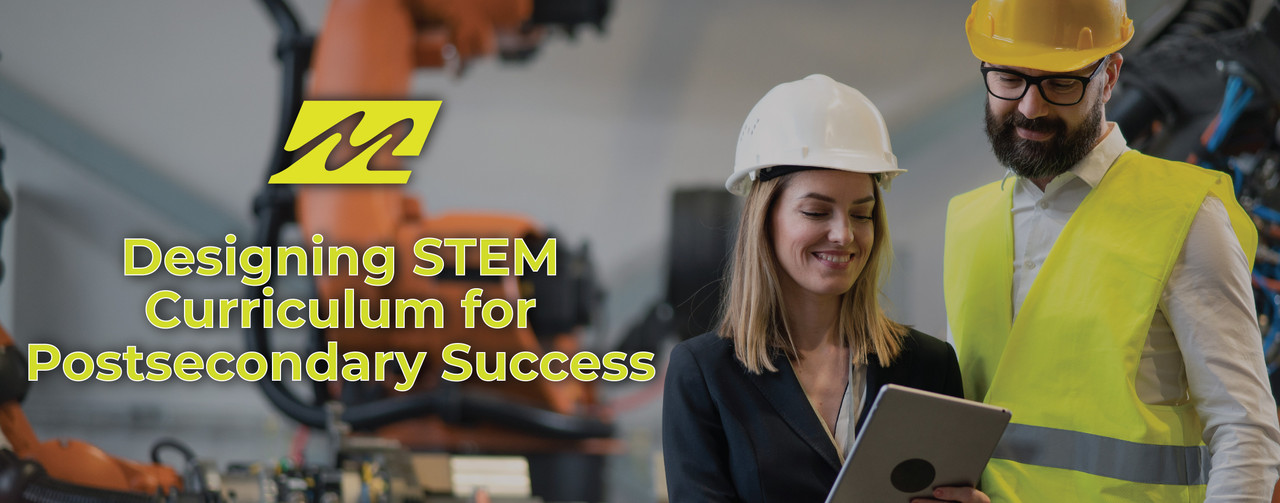Preparing students for specific jobs or careers can backfire when technological or economic situations eliminate those jobs or change the skills required to be successful. Setting students up with multiple options after graduation, whether in careers or college enrollment, is the key to a lifetime of job satisfaction, no matter what the future holds. Combining STEM classes with college and career prep is the best way to provide these options.
Industry-Informed High School Coursework
When conventional academic skills blend with industry-relevant skills and knowledge, students are better prepared for life after high school. In the classroom, this can look like students working in teams and taking on roles that would appear in a real work environment. For example, students in a computer science course may work together to design and build video games, though each student will have their own role such as programmer, artist, producer, or designer. By understanding what employers are looking for, educators can design and implement curriculum that builds students’ STEM knowledge and also helps them develop teamwork, communication, and problem-solving skills.
Cross-Disciplinary PBL
When teachers of different content areas team up to create project-based lessons, they get to intentionally combine those content areas together. In the computer science class mentioned above, students can practice ELA skills by developing a story and narrative for the game. A social studies class can explore the demographics of the gaming industry, or the intended audience of their game. This will lead them to consider how racial and gender stereotypes can cause issues with representation. In a business class, they can learn how to market the game to the appropriate audience, the ethics of marketing to children, and the social impact they want the game to have.
Early College Coursework
Taking early college courses introduces students to the structures and expectations of college work while they still have the support of their high school teachers. They may choose to take prerequisites for a major they plan to pursue, or complete some general education classes to get a feel for college life. This provides them with an opportunity to develop a college-going identity, gain skills to succeed academically in a more rigorous environment, and earn college credits that make a full degree more financially achievable. Even if they choose not to enroll, this experience helps them build essential skills for a successful adult life including time management, organization, and communicating with others.
Internships and Workplace Visits
School lessons are geared towards helping students pass exams, but they rarely prepare students for a workplace experience. Underclassmen can benefit from job shadowing, workplace field trips, and discussions with industry professionals. Upperclassmen can take more responsibility for the future by securing internships, whether during the school year or over the summer. These experiences allow students to learn more about a career they’re interested in, or get an idea of what careers are available in today’s job market.
Implementing Career and College Prep Into Your STEM Classroom
Preparing students for life after high school doesn’t have to mean completely redesigning your curriculum in one day. Start small by incorporating career skills into student projects and exploring college statistics in math class. Midwest Technology Products offers a variety of STEM products for schools that help prepare students not only for exams, but also careers and college courses. Shop our website or contact us today to learn more.

